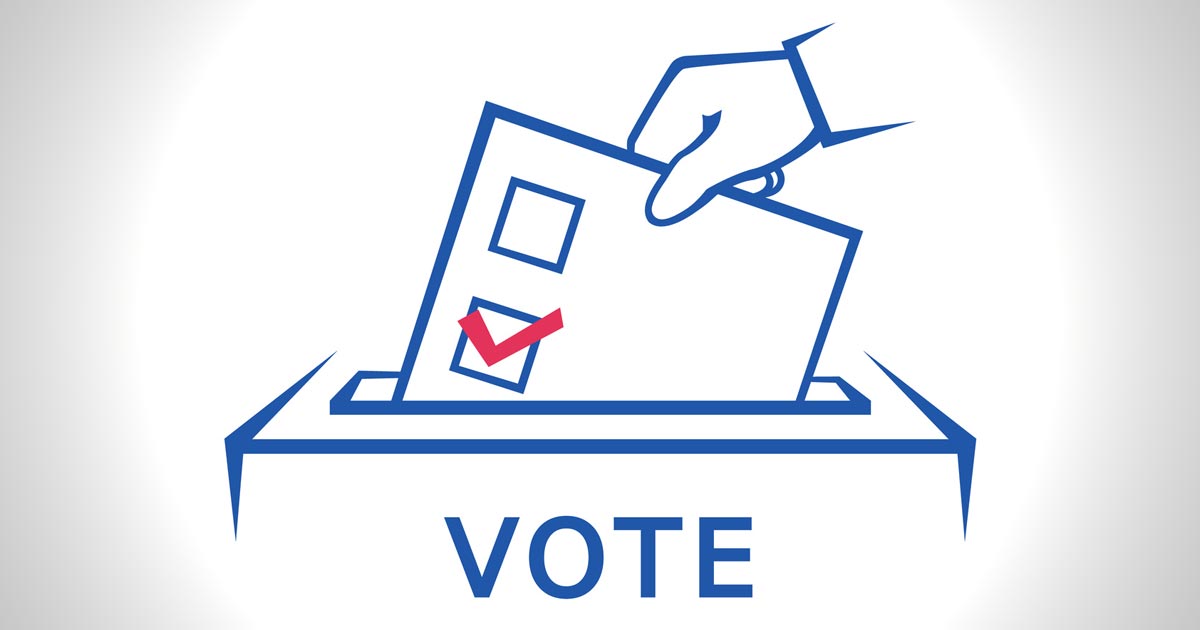RCVS Day 2016 has been and gone. I managed to watch a little on YouTube and I saw the new council members welcomed, which was really nice.
However, they read out the number of votes gained by each person – and although Matthew Rendle and Rachael Marshall pretty equally shared the majority of votes out of the almost 12,000 RVNs in our community, I was surprised to learn only 1,435 voted.
Less than 11% of our community feel engaged enough to vote on people who shape our future!
Voter apathy?
As a nation we know we’re more likely to vote in a reality show than in a national election. However, we still usually manage more than 50% of us turning out when we feel it matters. But 10%? Really?
It also doesn’t seem to matter what the RCVS ask about, it’s the same number of people who turn out – a similar number of VNs responded to a recent CPD survey.
I’m one of these people. I vote. I respond. However, I’m doing what’s best for me in my voting and my responses. So, my 1/10 response becomes more powerful. If I’m then speaking for nine silent nurses, my views are taken to speak for all of the community.
But what if what I think isn’t what you think? If you’re one of the silent nine, no one will ever know.
Using your voice
 You can complain to friends and family, you can whinge and post on forums, you can put a sad face on social media, you could even write a blog; but this doesn’t influence the RCVS, the BVNA, the BVA and the others putting vet nursing advances out there. For BVNA members – there are more than 5,000 and you pay to have the right to vote. With the RCVS it’s free – so why aren’t you voting?
You can complain to friends and family, you can whinge and post on forums, you can put a sad face on social media, you could even write a blog; but this doesn’t influence the RCVS, the BVNA, the BVA and the others putting vet nursing advances out there. For BVNA members – there are more than 5,000 and you pay to have the right to vote. With the RCVS it’s free – so why aren’t you voting?
Why is your engagement with your fellow RVNs so important? Well, it’s about you and the patients. Engaged communities have happier staff and better outcome for patients. The NHS is well aware of this and works with the business community to improve engagement – as shown in the report from The King’s Fund Leadership Review.
It is noted that engaged community members suffer less from burnout, disillusionment and are less likely to leave their role and profession. As we face these hurdles in vet nursing you should read the report, especially pages 2-5.
Increasing engagement
How do we increase engagement? The report notes people feel more engaged when they use their skills, and this increases job satisfaction and allows autonomy – things we can recognise in our fight to protect the title, protect our role and push forward with Schedule 3.
While some aspects of these are related to your individual role in practice, a lot of this can be influenced by the decisions made on RCVS VN council. So why not vote and become involved?
Engagement can be contagious: staff are supported, feel their input is acknowledged and are encouraged to do so. This creates a positive workplace where people flourish.
 Engaging with the profession outside the workplace is important too, such as attending CPD and talking to other vet nurses – you can also join in the discussion on social media. It doesn’t have to be joining forums or big groups, it can just be you following people you like.
Engaging with the profession outside the workplace is important too, such as attending CPD and talking to other vet nurses – you can also join in the discussion on social media. It doesn’t have to be joining forums or big groups, it can just be you following people you like.
To help filter timelines you could operate separate accounts for VN information and for other activities you have. It can mean you find it easier to switch off from work.
Starting conversations
For the vet nursing community as a whole, we need to feel our suggestions are listened to and ideas to improve our industry are acknowledged.
We get feedback from the RCVS. Regular newsletters are produced and carry important information. They are short, informative and mailed to you if you’re on the register. You can also follow them on multiple social media channels, as you can with BVNA and BVA. Apart from telephoning you all with the latest updates, I’m not sure what more they can do?
I’m happy to hear suggestions. As I’ve said, my blog doesn’t have the same power as a vote in an RCVS election, but it can start some great conversations and, hopefully, inspire some engagement activity in us all.

Leave a Reply